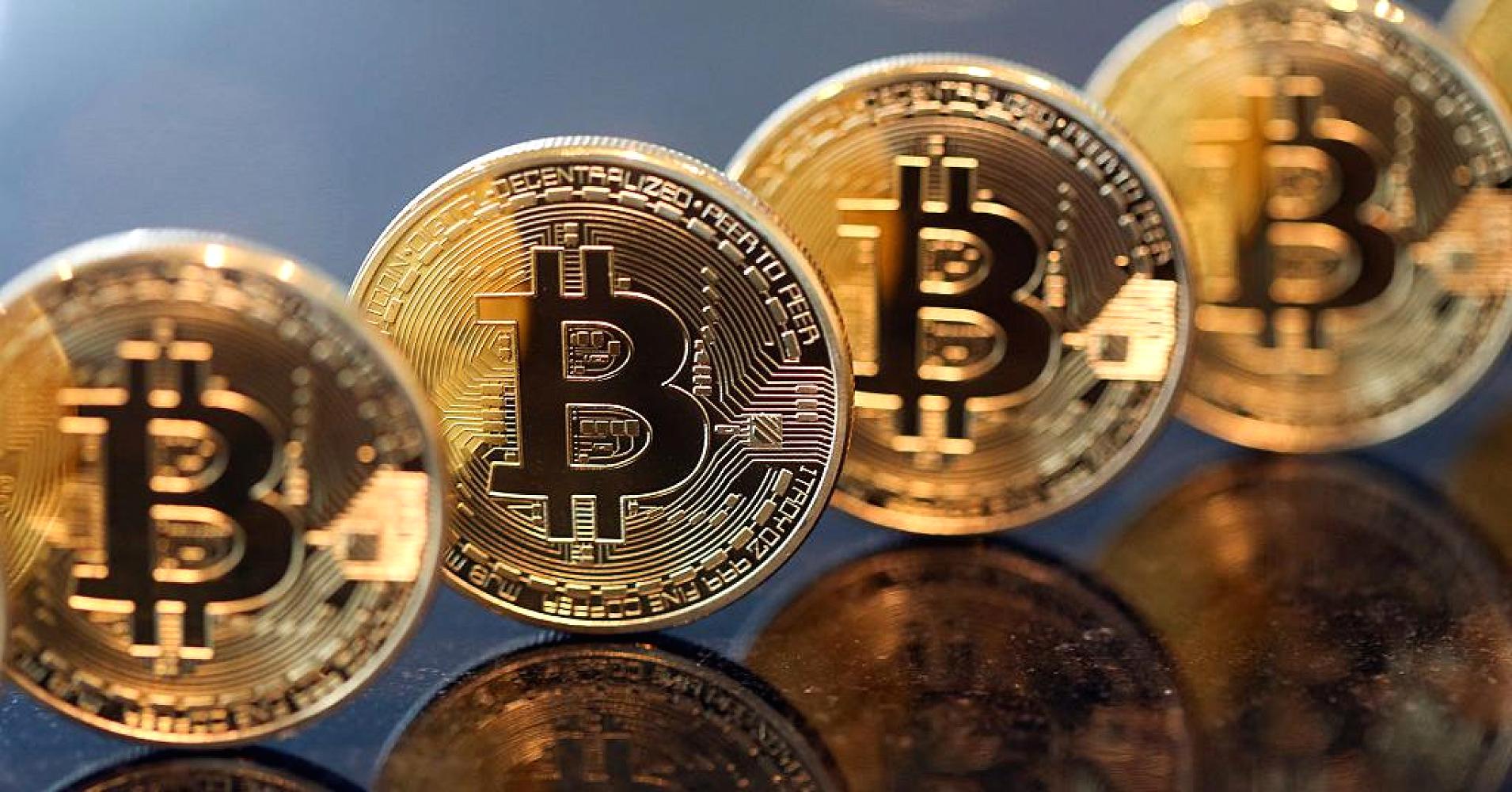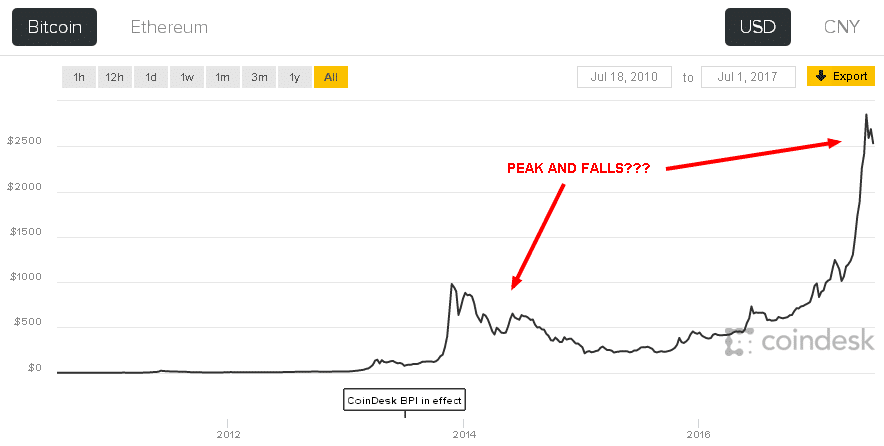Forget about the Trump Trade and the S&P 500. The latest craze in bloated stock price valuations revolves about crypto-currency contenders, both Bitcoin and its competitive rival, Ethereum. You may have had to dig a little deeper in the financial headlines to discover the presence of a revolution taking place, but prices, at least for Bitcoin, have tripled in just the past three months, creating a feeding frenzy amidst investors across the globe. Exchange volumes are soaring, but with such unbridled attention focusing on one sector of the financial services market, con artists are already setting up shop to fleece the unwary.
Wherever financial hype reigns, accompanied by a severe lack of due diligence, scams will always proliferate. The Bitcoin craze has happened before, and a host of fraud schemes soon enveloped the scene, leaving a bad taste in everyone’s mouths, from investors to regulators. Banking regulators are still unsure of how to tackle this modern phenomenon of “virtual currencies”, which has only opened the door wider for the criminal element in our society to jump in with both feet to rake in the dough. If it appears to be investment fraud, then the SEC will respond, although slowly. If a forex broker suddenly offers Bitcoins in its product line, then the CFTC, FCA, CySEC, and others may feel obligated to investigate, but compliance rules are lacking, as are penalties. Here are the brokers that offers trading in cryptocurrencies that we recommend.

The problem is also exacerbated due to the virtual nature of the beast. Despite ample warnings from regulators that traders and investors should be skeptical of any online promotion related to currency offerings, both traditional and crypto, the herd of lemmings, driven by personal greed, continues to leap without looking. The various schemes proffered up by the crooks are nothing new either. Ponzi schemes, high-yield investment programs, electronic wallets, phony exchanges, and pure phishing expeditions are vehicles that have been used for ages, yet the public swallows the bait.
Read more forex trading articles
What is Bitcoin and how does it work?
Anytime one attempts to understand this new phenomenon or find a very simplistic explanation that mere mortals can understand, one is confronted with a litany of IT-speak that only confuses the mind. Here is one attempt that seemed to convey the meaning adequately: “Bitcoin is a completely digital form of currency and uses cryptography, which controls the creation and transfer of this currency. There is no centralized exchange for any transaction to occur with this currency. Any number of Bitcoins can be sent to anyone living anywhere in the world without the intervention of any traditional financial institutions such as banks.”
Anonymity prevails in the way that addresses are handled by the system: “Any user that wants to use Bitcoins needs to have only a Bitcoin address and a reliable Internet connection. The user has to remain online for as long as the transaction needs to be processed. Every transaction that takes place is recorded in a public ledger called the blockchain. However, any user can receive Bitcoins even when they are offline to their Bitcoin address.” Bitcoins can be quickly redirected to obscure the audit trail, as well.
What have Bitcoin prices been doing recently and why?

The last great run up in Bitcoin prices occurred back in late 2013. At the time, we wrote the following: “Bitcoin? Have you heard the good news? The latest evangelistic confab has come and gone, this time in Atlanta, Georgia, but do not lose hope – the throng of enthusiastic followers quickly exited over the weekend for flights to Las Vegas, where the ongoing Money2020 conference is sure to be another group hug for this amazing crypto-currency. I use the word “amazing” because there have been hoards of skeptics, critics, and government officials that have tried, to no avail, to send this effort to oblivion.” As opposing forces backed away, stock prices soared to $1,000.
Regulators were backing away, while the crooks were falling in love with the anonymity that the blockchain technology afforded their clandestine efforts. All manner of types of shady money handlers jumped upon the Bitcoin bandwagon, including “drug runners, arms dealers, money launderers, and frightened Russians when banks in Cyprus, their favorite resting place for exported capital, were shut down back in April.” When China and Russia withdrew their support and banks and regulators renewed their assaults, prices plummeted back down to the $250 range by the end of 2014. For all intents and purposes, the damage had been done, but software bugs, scandals, and the bankruptcy of the major exchange in the system, Mt. Gox, all but crushed investor enthusiasm.
Bitcoin enthusiasts, however, would not go away, nor would the sudden interest within both the venture capital arena and software development industry for the allure of blockchain technology, the underpinnings of the Bitcoin architecture. According to Morgan Stanley and a host of other investment houses, the growing momentum for the appeal of blockchain technology, the hidden asset behind the entire shebang, is actually driving the rapid appreciation of Bitcoin values in recent months. If you had held onto your Bitcoins in 2014, you would have achieved in two short years what has been euphemistically called a “ten-bagger”. Prices have spiked over $3,000 on a few global exchanges, but have now settled back at $2,632 at the latest close.
How steady is the driver behind the Bitcoin price surge? According to one analyst, “In part, the price of Bitcoin has been correlated with the wider acceptance of the concept and trust in the technical underpinnings of what some argue is not an asset at all, but more a technical platform that will drive the future.” Will prices go higher? Another analyst concludes, “The combination of developer interest and increased ease of investment will only drive prices higher. So long as the community avoids further hacks and scandals, the popularity will continue.” His parting advice: “Caveat emptor!
What has been the response in the forex industry?
Competition has been heating up in the foreign exchange retail trading space for the past several years. In times like these, forex brokers that innovate quickly for advantage will seize upon the latest popular fad as one way to distinguish themselves from their competitors. As could be expected, the Bitcoin craze of 2013 stimulated just such a response. Brokers began offering Bitcoin trading in quick succession. One recent account noted that, “News of more forex brokers adding Bitcoin trading is doing the rounds, with the European JFD Brokers and AvaTrade joining the list.” The challenge now is to choose a respectable Bitcoin broker, just as you would your forex broker.

It did not take very long before ads like the one above began appearing on the Internet. The mere suggestion that instant profits of 90% were available with Bitcoin binary options in as little as a minute was a siren call to the unwary and uneducated. One can only hope that the purveyor of such an enticing promise would have the wherewithal to pay such immediate rewards and have access to a reliable Bitcoin exchange in the background. Brokers can also fall victim to the common crypto-currency frauds that prey upon consumers at will.
What are the five prevalent Bitcoin schemes that are gaining traction today?
Initial concerns over crypto-currencies have always been that they operate outside the ability of any regulator to test if compliance measures are being adhered to. Since the transactions are irreversible and do not flow thorough a single exchange, the propensity for fraud and outright theft will continue to be a risk. Criminal efforts to leverage this regulatory “loophole” are many, but strangely similar to what we have seen before. Here are the “Top Five” on this Bitcoin scammer’s hit parade:
1) Bitcoin Ponzi Schemes: Nothing new on this front, but the scams promise high returns for minimal risk. As long as new investors keep joining, then payment flows will continue. Otherwise, payments stop and the crooks disappear with your account balances;
2) Bitcoin Mining Investment Schemes: Do you want to create or “mine” the Bitcoins in the complicated blockchain system? Scammers will sell you the right equipment for advance payments. The equipment never arrives;
3) Bitcoin Wallet Scams: Do you want to establish a Bitcoin “wallet” under a protective umbrella company’s offering to gain anonymity for funds you wish to hide? Be prepared for a disappearing act in the short run;
4) Bitcoin Exchange Scams: Hopefully, you were not involved in the Haddow fake exchange highlighted in the following section. Do not be duped by phony exchange operators that appear legitimate up front;
5) Bitcoin Phishing Scams: Beware the email that claims that you have won Bitcoins, with a convenient link to collect your prize. Crooks can then control your account.
Have there been any recent high profile frauds in this arena?
In the past week, headlines claimed that, “UK dealer charged in US over multimillion-dollar fake Bitcoin site scam.” The storyline went on to relate that, “U.S. authorities on Friday charged a British businessman, Renwick Haddow, a UK citizen living in New York, with securities fraud, accusing him of deceiving investors over what turned out to be a fake trading platform for the crypto-currency Bitcoin.”
The director of the SEC’s New York office, Andrew Calamari, stated that, “Haddow created two trendy companies and misled investors into believing that highly qualified executives were leading them to quick profitability. In reality, Haddow controlled the companies from behind the scenes and they were far from profitable.” Investors were out $38 million, according to statements. Haddow had been disqualified by the UK Insolvency Service in 2008 following his misconduct as a finance director and is said to have “funneled at least $18m to accounts in 40 countries, including China, Cyprus, Mauritius, and Morocco, prosecutors said.”
Concluding Remarks
Bitcoin and Ethereum are the investment rages of today for a variety or reasons that seem to ebb and flow at a whim. Where there is the potential or at least perceived potential of making enormous gains in a short period of time, there will be scams and con artists in abundant numbers. If you want to jump upon this over-hyped gravy train, then be sure to maintain your skepticism at every turn, and stay vigilant. Here are some recommended bitcoin trading brokers.
One skeptic gave this simple, but wise, advice: “As in the offline world, if it looks too good to be true, it is most likely a scam. When dealing with Bitcoins, it is best to treat the currency as carefully as cash in the everyday world. If you lose it, it is very unlikely that you will ever get it back.” Wise words for the unprepared – Buyer Beware!
Related Articles
- Forex vs Crypto: What’s Better For Beginner Traders?
- Three Great Technical Analysis Tools for Forex Trading
- What Does Binance Being Kicked Out of Belgium Mean for Crypto Prices?
- Crypto Traders and Coin Prices Face New Challenge as Binance Gives up its FCA Licence
- Interpol Declares Investment Scams “Serious and Imminent Threat”
- Annual UK Fraud Audit Reveals Scam Hot-Spots
Forex vs Crypto: What’s Better For Beginner Traders?
Three Great Technical Analysis Tools for Forex Trading
Safest Forex Brokers 2024
| Broker | Info | Best In | Customer Satisfaction Score | ||
|---|---|---|---|---|---|
| #1 |
|
Global Forex & CFD Broker |

Best Trading Conditions
Visit broker
|
||
| #2 |
|
Global Forex Broker |

BEST SPREADS
Visit broker
|
||
| #3 |
|
Globally regulated broker |

BEST CUSTOMER SUPPORT
Visit broker
|
||
| #4 |
|
Global CFD Provider |

Best Trading App
Visit broker
|
||
| #5 |
|
Global Forex Broker |

Low minimum deposit
Visit broker
|
||
| #6 |
|
Global CFD & FX Broker |

ALL-INCLUSIVE TRADING PLATFORM
Visit broker
|
||
| #7 |
|
Global Forex Broker |

Low minimum deposit
Visit broker
|
||
| #8 |
|
CFD and Cryptocurrency Broker |

CFD and Cryptocurrency
Visit broker
|
||
|
|
|||||
Forex Fraud Certified Brokers
Stay up to date with the latest Forex scam alerts
Sign up to receive our up-to-date broker reviews, new fraud warnings and special offers direct to your inbox


